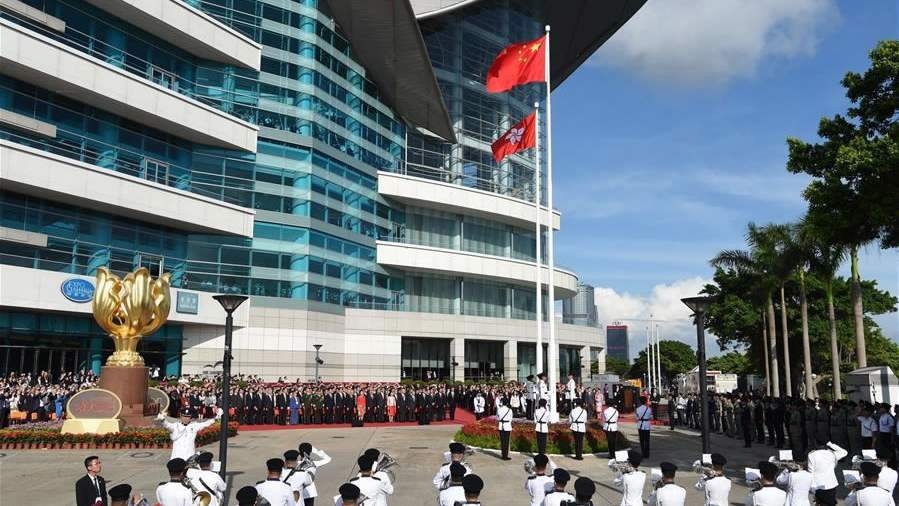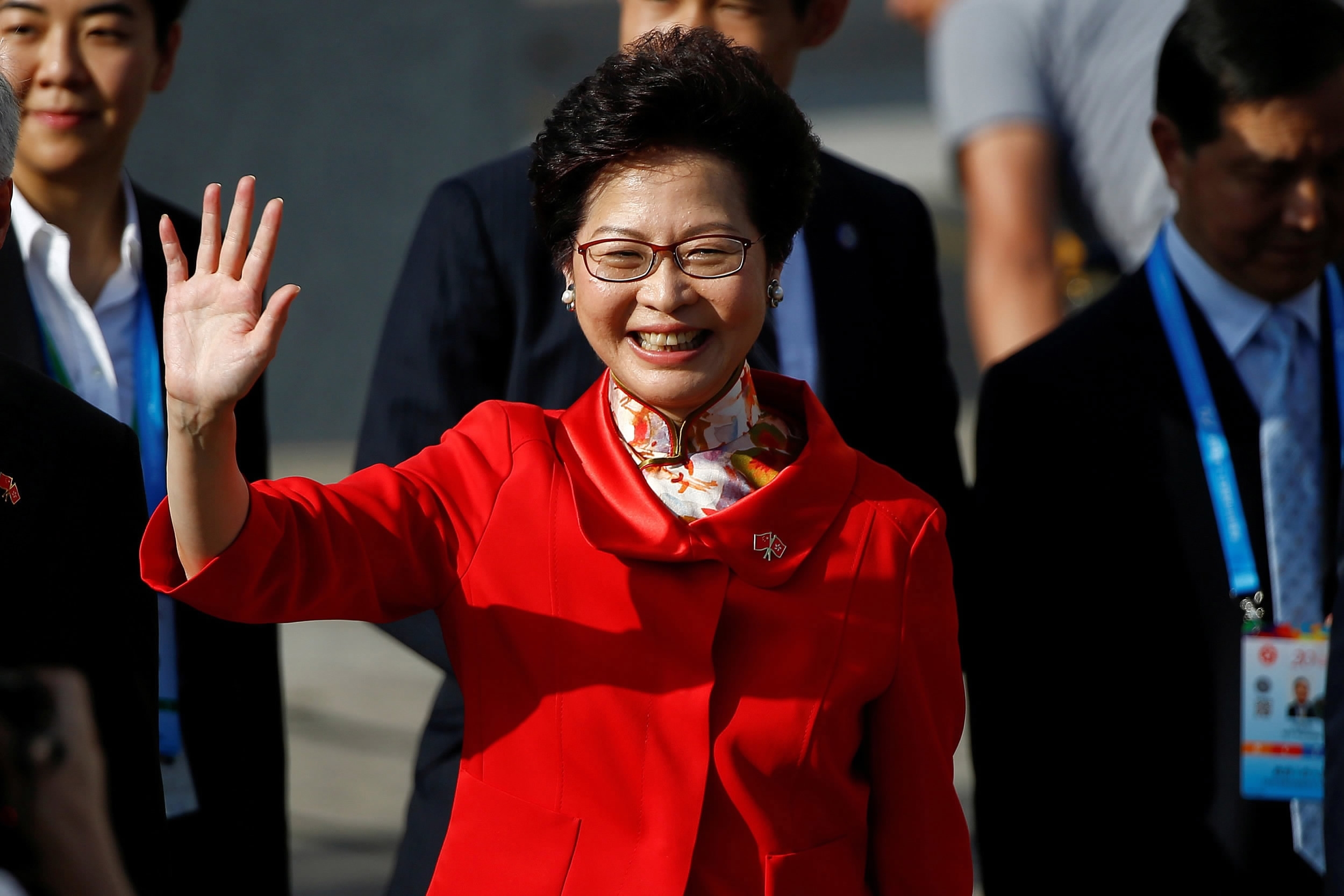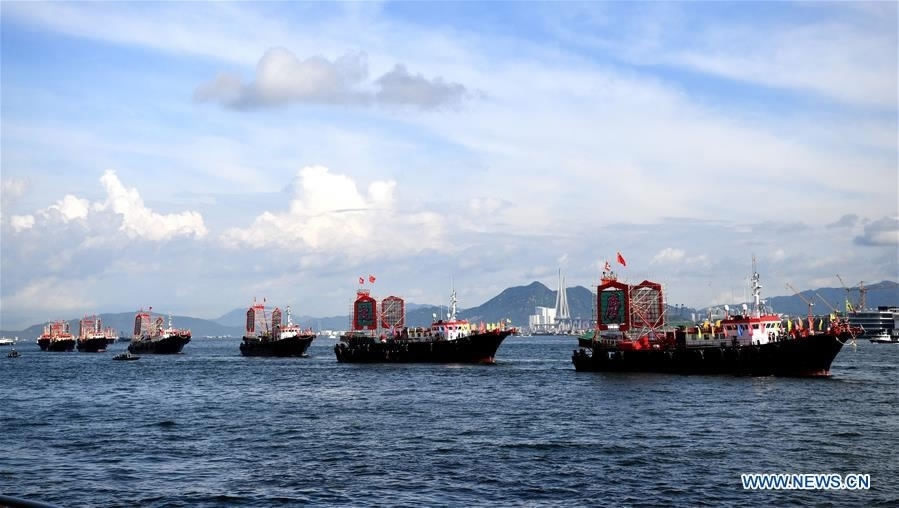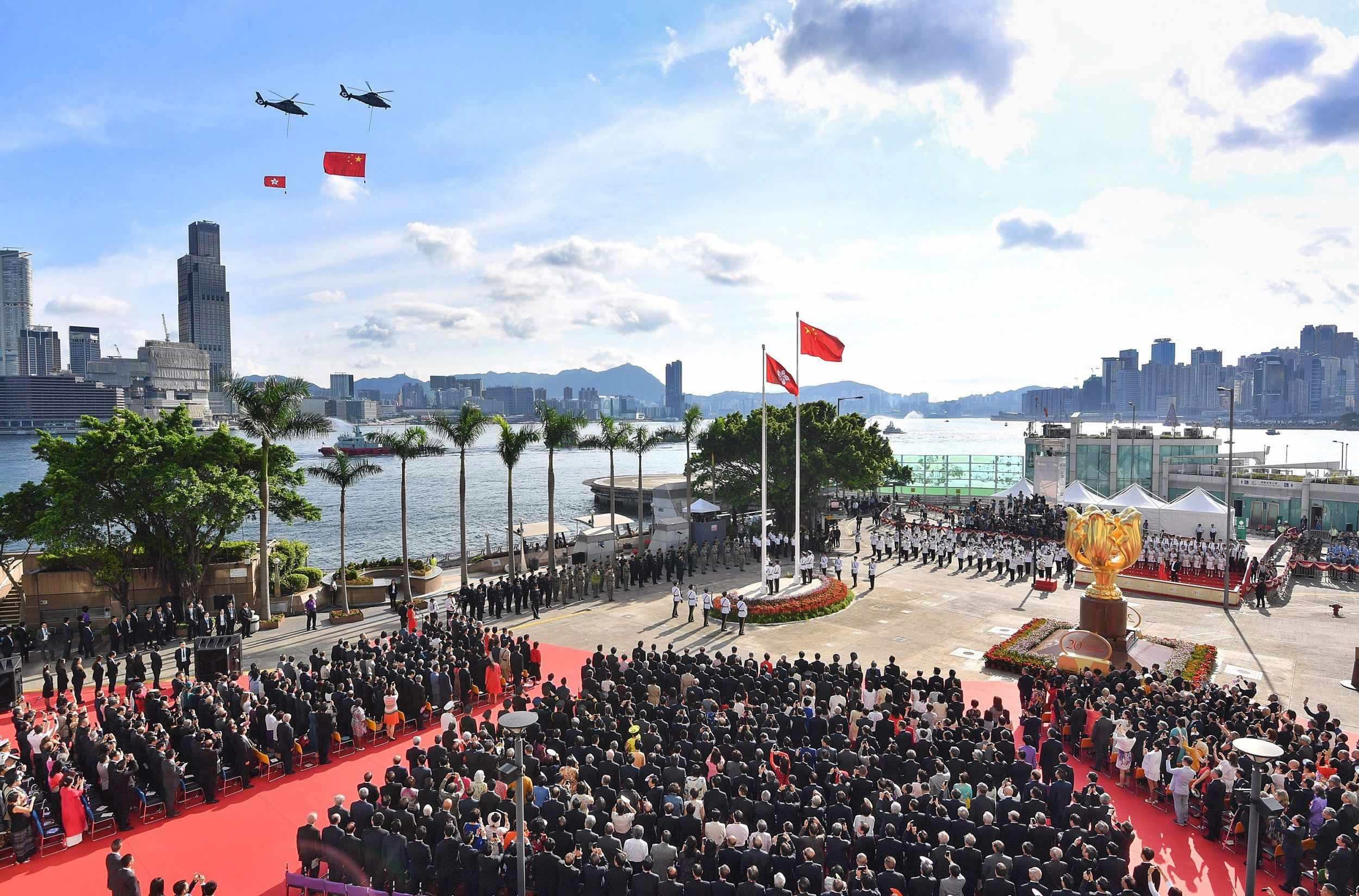
Opinions
17:00, 26-Dec-2017
Year-end Review: The wisdom of 'One country, two systems'
Guest commentary by Victor Gao

On July 1, 1997, Hong Kong reunited with China under the “One country, two systems” (OCTS) policy. Twenty years later, OCTS has stood the test of time and remains the pillar for Hong Kong’s stability.
Looking back at Sino-British negotiations in the 1980s regarding the future of Hong Kong, OCTS emerged as the most important, unprecedented, and extraordinary compromise and paved the way for the successful transfer of Hong Kong from Britain to China in 1997, securing political stability of Hong Kong for the next fifty years.

Hong Kong Chief Executive-elect Carrie Lam waves as she arrives for a flag raising ceremony on the 20th anniversary of the city's return to the motherland, in Hong Kong, south China, July 1, 2017. /CFP Photo
Hong Kong Chief Executive-elect Carrie Lam waves as she arrives for a flag raising ceremony on the 20th anniversary of the city's return to the motherland, in Hong Kong, south China, July 1, 2017. /CFP Photo
OCTS required political wisdom, courage and vision from both China and Britain, principally Deng Xiaoping of China and Prime Minister Margaret Thatcher of the UK. OTCS broke the deadlock over the transfer of Hong Kong from UK to China - One country - and secured the continuity of the political system - the capitalist system in Hong Kong vs. the socialist system in Chinese mainland - in the future.
Over the past two decades there have been many problems and challenges in Hong Kong, including demands for greater democracy and better economic development. There are also fringe groups in Hong Kong who demand “Hong Kong independence”, which is illegal and futile. OCTS has been a solid bedrock ensuring stability and continuity in the political system of Hong Kong and the overall relations between Hong Kong and the Chinese mainland.

Fishing boats take part in a parade to celebrate the 20th anniversary of Hong Kong's return to the motherland, in Hong Kong, south China, July 1, 2017. /Xinhua Photo
Fishing boats take part in a parade to celebrate the 20th anniversary of Hong Kong's return to the motherland, in Hong Kong, south China, July 1, 2017. /Xinhua Photo
In recent years, there has been the Scottish independence referendum, which failed, and the Catalonia independence referendum, which was declared illegal. These political events were British and Spanish internal matters respectively, and the people and governments in other countries were advised not to intervene.
Likewise, in the coming thirty years, in a democracy like Hong Kong, there will be all kinds challenges and pressure points. So long as OCTS and the rule of law in Hong Kong are protected, long-term political and economic stability in Hong Kong will be maintained.

A flag-raising ceremony at Golden Bauhinia Square in Hong Kong to mark the 20th anniversary of its return to the motherland. /CFP Photo
A flag-raising ceremony at Golden Bauhinia Square in Hong Kong to mark the 20th anniversary of its return to the motherland. /CFP Photo
People in Hong Kong are encouraged to promote greater democracy by respecting and protecting OCTS and the rule of law. People and governments outside of Hong Kong and the Chinese mainland are advised to learn and understand the fundamental wisdom of OCTS and avoid double standards in dealing with the political situation in Hong Kong.
(The author is a political commentator and former interpreter for Deng Xiaoping. The article reflects the author’s opinion, not necessarily the views of CGTN. )

SITEMAP
Copyright © 2018 CGTN. Beijing ICP prepared NO.16065310-3
Copyright © 2018 CGTN. Beijing ICP prepared NO.16065310-3